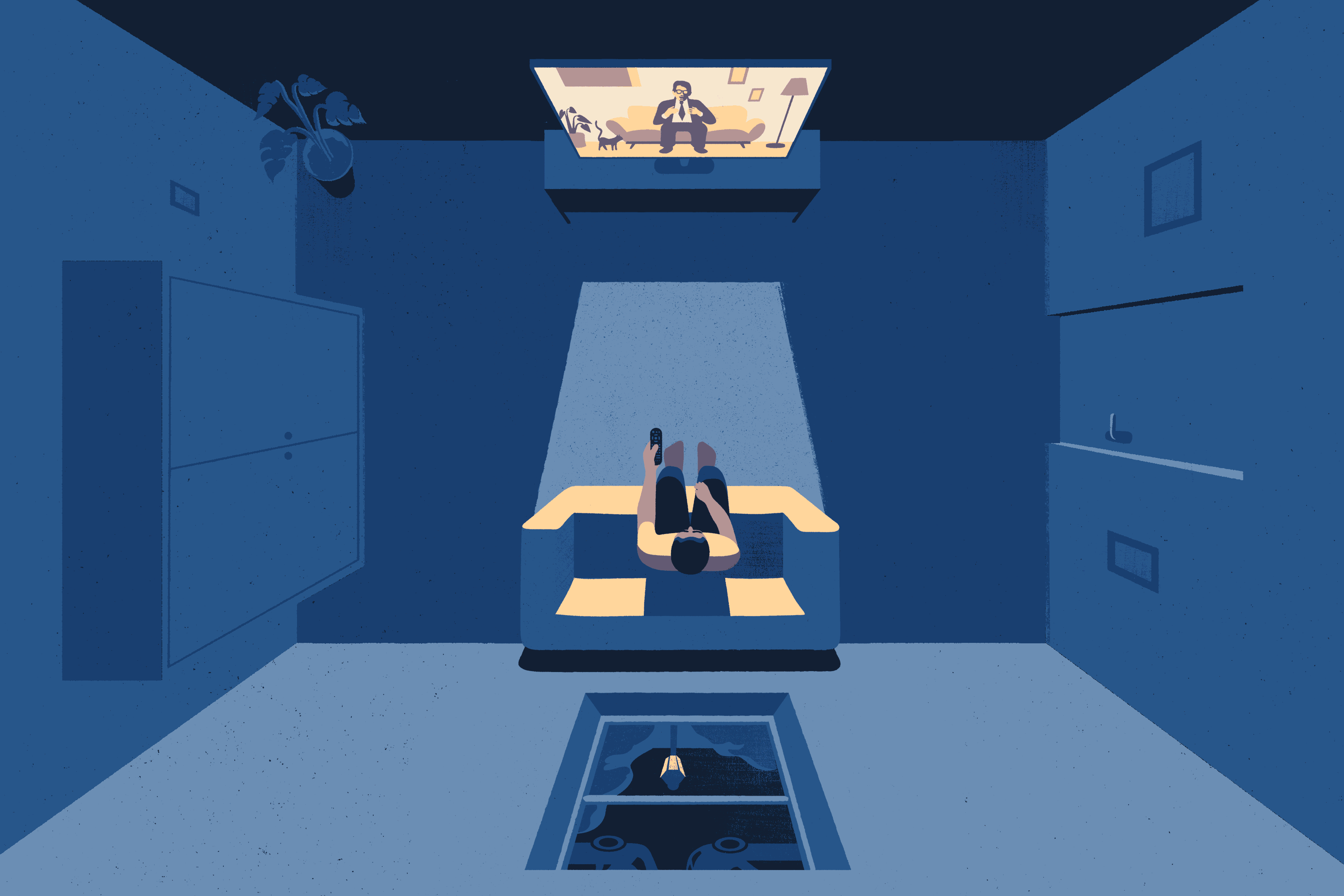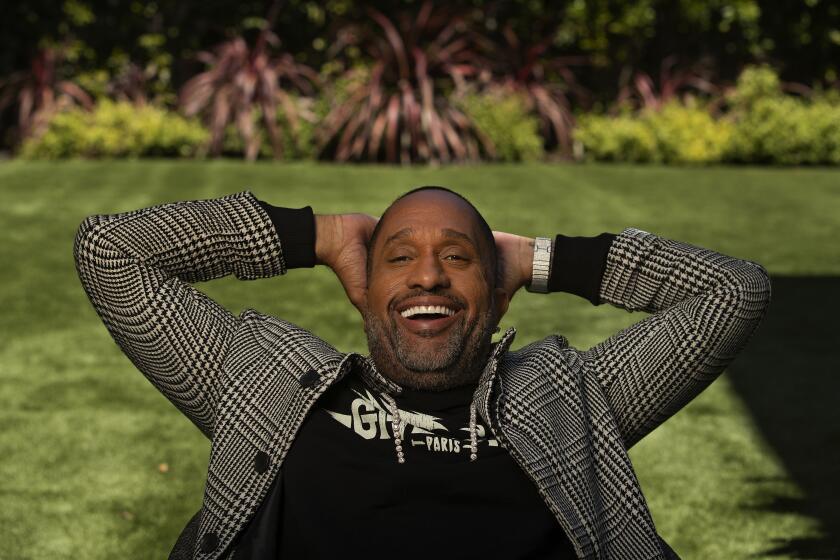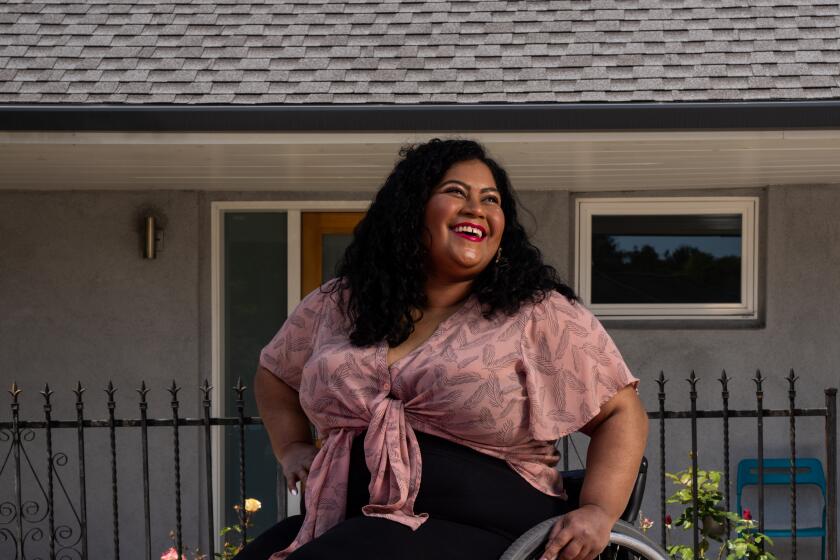Some creators of color fear coronavirus will be major setback in TV’s diversity push
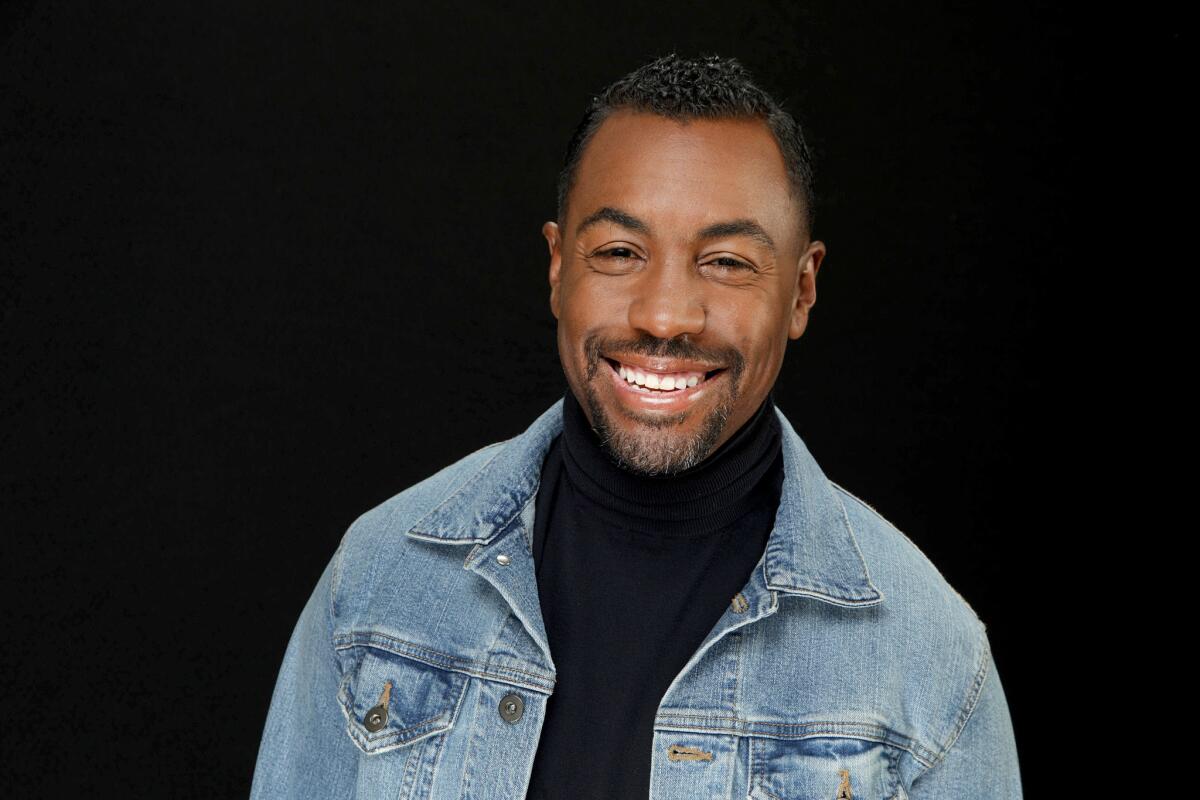
- Share via
The coronavirus crisis has turned all of Hollywood upside down, and the hoped-for return to even a small degree of normalcy remains uncertain.
But one segment of the entertainment industry has been particularly shaken to its core: the circle of black and Latino creators responsible for much of TV’s freshest and most innovative content.
The harsh reality that the virus is particularly lethal for black and Latino segments of the population has prompted heightened concerns among some of TV’s top talents about their creative and personal futures. A Los Angeles Times data analysis concluded that blacks and Latinos under 50 are dying of the coronavirus at significantly greater rates than other groups, including whites.
Several creators of color, such as Kenya Barris, Shonda Rhimes, John Ridley, Lena Waithe and others have enjoyed solid mainstream success in recent years. Though the struggle for greater diversity within the industry is not finished, Hollywood has become demonstrably more inclusive, a sharp turn from earlier decades when insightful and provocative projects involving people of color were not enthusiastically embraced.
A mode of communication designed to get us to stay home, often skewered as the “boob tube” or “idiot box,” TV kept its lights on as others flickered out.
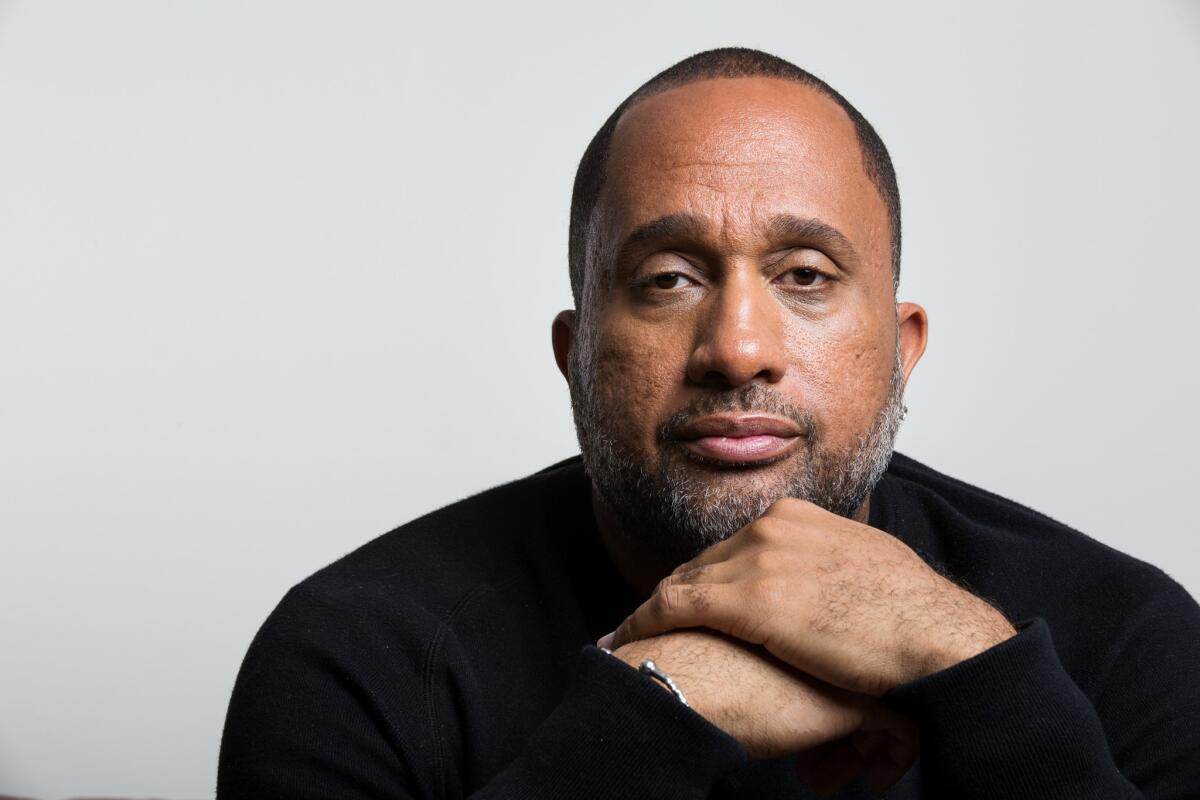
“There has been nothing short of a black renaissance in film and TV,” said Barris, the creator of “black-ish” and the new Netflix family comedy “#blackAF,” in which he stars. “When that movement stops, you always wonder, ‘What will come of it?’ What happens when you press the pause button? My fear is there’s a drastic change. The writers’ strike gave birth to reality TV. What will this give birth to? I’m fearful.”
Prominent black and Latino creators contacted by The Times in the last few weeks have had varying reactions to the pandemic. Some fear the progress made by meaningful and entertaining cultural content may suffer a troubling setback. Others were more hopeful.
Gloria Calderon Kellett, co-creator and showrunner of the Latino family series “One Day at a Time,” said her concerns go beyond job opportunities. “Social change has come about because of storytelling. There have been social shifts. These shows were getting love, getting critical acclaim. People are rabid for this kind of information and content.”
For now, many black and Latino creators are focused on keeping themselves and their loved ones safe and healthy while anxiously speculating about what lies ahead.
In Netflix sitcom “#blackAF,” ’black-ish’ creator Kenya Barris moves in front of the camera to star as a successful TV writer living the high life.
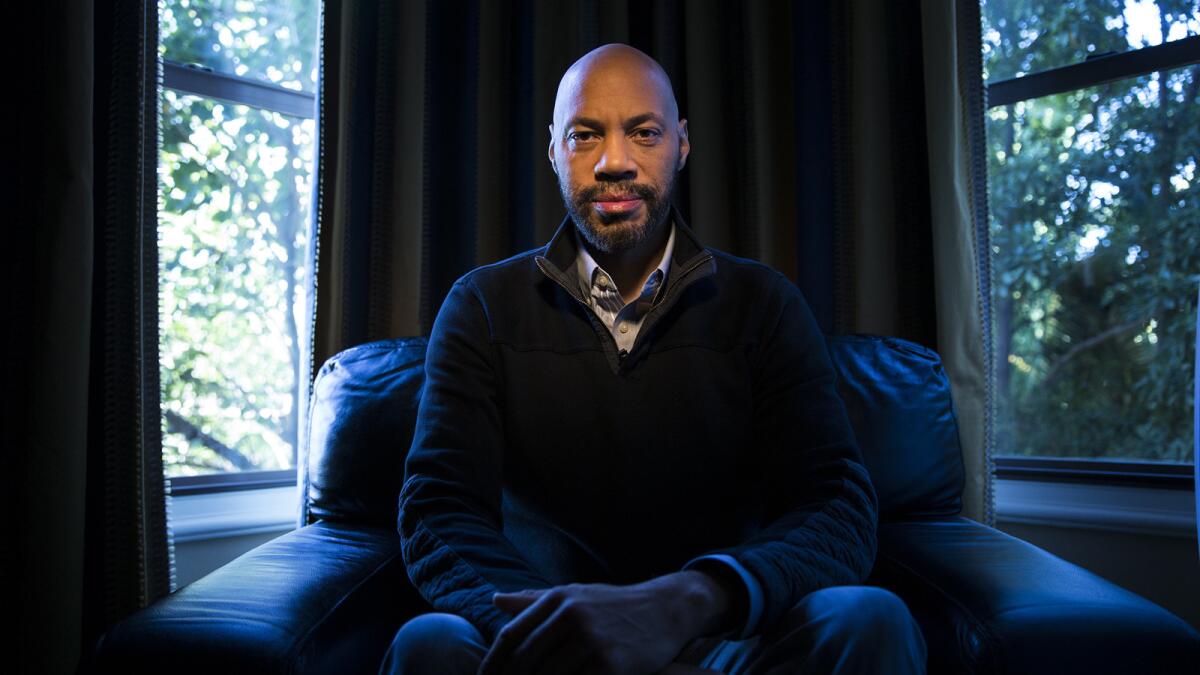
John Ridley, Oscar-winning screenwriter of “12 Years A Slave”; creator of ABC’s “American Crime”; director of “Let It Fall: Los Angeles 1982 to 1992”
John Ridley has gravitated toward projects that have sharply probed racially charged issues such as discrimination, immigration and class disparity. “It’s been, ‘Here are these problems, this is why these problems are here, and this is how these problems affect us,’” he said.
He called “Let It Fall,” an investigation into the decade before and including the 1992 Los Angeles riots, a defining example of his vision. He fears the kinds of provocative perspectives that have won him acclaim may be in jeopardy due to the COVID-19 crisis.
Said Ridley, “There’s not an appetite in the larger Hollywood space for an examination of systemic problems and the personification of those problems.”
Before the pandemic, he had been working on a project that was not directly about the crisis, but about “doctors, about lack of resources, first responders having to make critical decisions. It was not necessarily specifically about people of color, but the environment spoke to something that proportionally affected people of color.”
He added, “There was not overt racism, and it wasn’t a personification where it was like ‘OK, we’re battling this person, and if there is a victory over this person, we can see what that victory means for people of color. It was a historical and systemic problem.”
It was a project that excited him. But when the coronavirus crisis hit, the plug was pulled.
“The people who brought me this project could not run away from it fast enough,” he said. “I don’t think there’s an appetite for projects about issues people of color are facing that are just baked into the equation. For me it is a story that is painful and worth excavating. There is no bad guy. This was brought to me. But if we can’t tell this story, I don’t know how you get into something that is more complicated, showing people of color suffering in a different way.”
Though he understands the decision to some extent, Ridley is still troubled.
“People want happiness and escapism — of course they do,” he said. “But in this environment when there are 400,000 scripted shows on the air, it breaks my heart that most people won’t have the wherewithal to go after something more complicated.”
The annual CBS Diversity Showcase is a vital platform for underrepresented performers. But coronavirus has interrupted the plans of this year’s group.
Walter Mosley, bestselling author, writer of the Easy Rawlins mysteries, executive producer and writer of FX’s “Snowfall.”
“This hasn’t happened before,” said Walter Mosley when asked about his thoughts concerning the pandemic. “But it’s not something we didn’t think could happen.”
The prolific author has a collection coming out in September titled “The Awkward Black Man,” which includes a story about a man who barricades himself in his apartment following a New York hurricane.
“This man says ‘I’m not leaving my house because it’s too dangerous. There’s diseases, there’s terrorism. Newspapers are lying and the economy is against me,’” Mosley said. “He has some connection with the outside world — some good, some bad.
“He becomes a hero to some people. So I’ve already been writing about it.”
Mosley has an optimistic outlook.
“There’s all this potential,” he said. “It has a lot to do with race and economics and gender. If we can get people to say, ‘We’re all having this problem together,’ then there’s a lot we can learn from each other. That’s a great thing. It’s like, ‘What are you needing? What’s your blood pressure? Do you have diabetes? How is that going?’”
He added, “You look up at the sky and it’s actually clear. The world is trying to heal itself. If you can see all that, there’s a potential to learn from this experience, which in many ways is awful. There’s a possibility that a white person in a poor white community might say, ‘Hey, I’m having the same problem as those black people over there or those brown people over here.’ This is a bad time, but at the same time it offers us all an opportunity to make us all better.”
With more than 40 series in production at one time, no network has had to adapt to the coronavirus outbreak quite like reality TV powerhouse Bravo.
Robert Townsend, actor/filmmaker, director of “The Five Heartbeats” and the documentary “Making ‘The Five Heartbeats’”
Robert Townsend doesn’t waste time when asked about how he’s handing the pandemic personally and creatively.
“I’m taking a holistic approach, reading up on things to make me healthier,” said Townsend, whose 1987 comedy “Hollywood Shuffle” was a milestone for independent black cinema.
He paused when asked how the crisis may potentially impact his creative direction going forward.
“When the world stops, it forces you to look at your life,” Townsend finally said. “Who am I, where do I want to go when this is over, what do I want to create? It’s made me rethink some projects I wanted to do, and that I don’t want to do now. I’m using this as a beautiful opportunity to reset Robert. I know this is an opportunity, so I don’t see this as a negative. The future is all about being prepared.”
He’s also enjoying the response to his documentary, “Making ‘The Five Heartbeats’,” the story behind his 1991 dramedy centered on a 1960s singing group fashioned after the Temptations that has built a strong following with black fans since its release. The film is streaming on AMC Networks’ service UMC. He’s also directing episodes of “The Last O.G.” with Tracy Morgan and the CW superhero series “Black Lightning.”
“So many ideas are coming into my brain right now,” Townsend said. “This is an amazing time for an artist to focus and regroup.”
Prentice Penny, executive producer/showrunner of HBO’s “Insecure”
The fourth season of HBO’s series about the personal and professional difficulties of a black Angeleno woman named Issa Dee (Issa Rae) began just a few weeks ago, but showrunner Prentice Penny has just convened the writers’ room to start developing the next season, which will air next year.
“We are having discussions about how much of this situation are we hitting,” said Penny. “We don’t want to be tone deaf to what’s happening, but it also becomes a different kind of show in some ways. We’re still figuring out our balance. It’s a work in progress. Right now we’re looking at the big picture — what do our characters want, what are they trying to do.”
L.A. has always been key to Issa Rae’s “Insecure.” But now, with the city hunkered down amid the coronavirus outbreak, that love feels more vital than ever.
Gloria Calderon Kellett, co-creator, co-showrunner of “One Day at a Time”
Gloria Calderon Kellett is trying to stay upbeat despite the personal challenges she is facing.
“I have a lot of vulnerable people in my life,” she said in a phone interview. “My parents and husband are autoimmune-compromised. I have not left the house in eight weeks.”
She is also trying to be optimistic about the future for other creators of color.
“I think about all these shows that were just now getting momentum, how this moment we’ve wanted for so long has turned into a movement with so many stories about people of color getting made,” she said.
She was particularly thrilled about viewer reaction to “One Day at a Time,” which started airing on Pop this spring after being canceled on Netflix after three seasons. “Our numbers were very good on cable, the momentum was there for my little show that could, and then we’re shut down.”
She worries not only for her series but also for other shows by and for people of color: “We were finally breaking through. How many of these shows starring people of color will get to come back? Will we have the same momentum when so much time has passed? Hopefully the momentum will not have died down completely.”
More to Read
The complete guide to home viewing
Get Screen Gab for everything about the TV shows and streaming movies everyone’s talking about.
You may occasionally receive promotional content from the Los Angeles Times.
